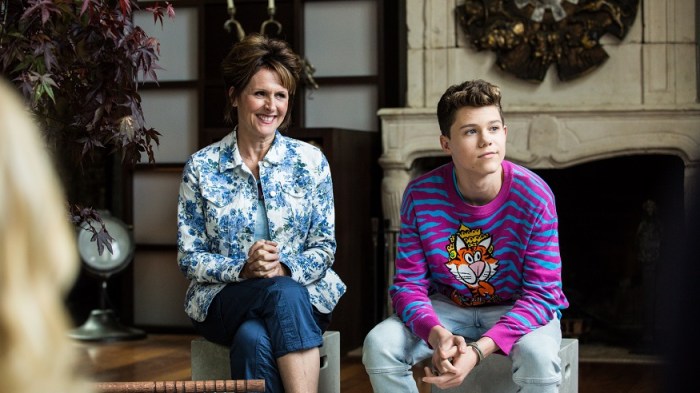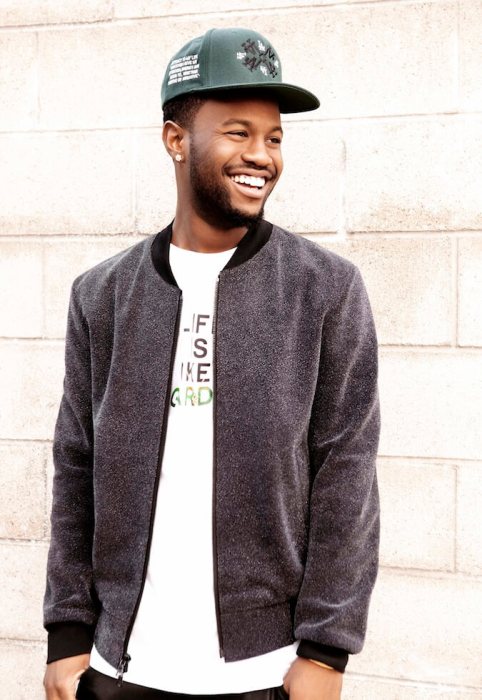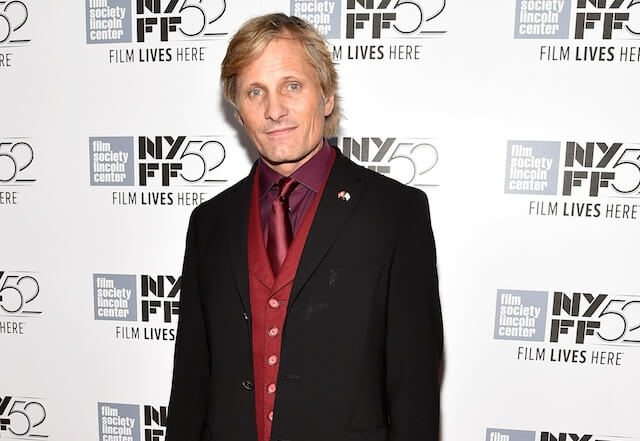In “The D Train,” Jack Black plays Dan, a small town type desperate to convince the coolest guy in class, a small-time struggling actor played by James Marsden, to attend their 20-year high school reunion. But Dan winds up a little too into Marsden’s Oliver, and Oliver himself doesn’t find the advances unwelcome, at least when he’s drunk and high on pills. In reality Black and Marsden have their own reunion: in 1995, before either was known, they both appeared in the same episode of “Touched by an Angel.” Not that they have many memories of it, though that’s probably for the best. Did you two see each other since that episode? James Marsden: No, we did our best to forget the experience. We both had to be reminded that we shared the screen together.
Jack Black: Is that reunion coming up for “Touched by an Angel”? That should be happening soon. Do they do reunions for episodes?
Marsden: They should.
This is a special kind of a buddy comedy. How did you develop your rapport? Black: I’d like to think my rapport with James is a bit different than our onscreen rapport. The movie depends on a non-rapport, actually — an uncomfortable sycophantic situation. It wasn’t really important that we get chummy off-camera. But we did. Marsden: I love that it was two guys who never hung out in high school. What would they have in common? What would they talk about? The connective tissue was this desperation for validation between the two of them. My character makes him relevant and important if he gets me back to the reunion, and he makes me feel relevant and important by praising him. It’s a shaky ground for a friendship but interesting for comedy purposes. The film dwells on how even minimal fame can seem like mega-celebrity to people in small towns. Marsden: I remember when reality shows started happening. One of my friends from high school was going off on how he met someone from some reality show. I guess nowadays they’re the real celebrities; reality stars are the people who are on the cover of every magazine now. I grew up thinking I wanted to be a news anchor, because they were celebrities. They were on TV every night or every morning. It’s amazing what putting someone on a television screen does to people. Even if you’re Bob Bodiddly selling Chevrolets, people act strange around and give you extra attention, just because someone points a camera at you. What have your interactions with people you went to high school been like?
Marsden: There are two types to me. One is the people who are excited; “Wow, you did it, that’s so cool, really happy for you!” Then there’s the other that’s like, “I don’t know what the big deal is.” They’re overly put out by you. “I don’t even watch TV or movies. Who are you again?” Then you find out they’re the ones that know the most about what you’ve done. Black: You ever get this one? “I gotta be honest, I’m not a fan. That’s the kind of guy I am. I always tell the truth and I’m not afraid to just be up front. I’m for real. I’m just going to stay here and be in your face for a while. So how’s everything else going? No, because we can be bros. In a way, we can be deeper bros than people who kiss your ass, right? Because you probably respect me more for that. Now we can be best friends.” Did either of you actually go to your high school reunions? Black: I did. I went to my 20. It was pretty fun. My favorite band from high school was there, Mustard. They crushed it. They got back together and rehearsed just to bring back the magic.
There’s a balance in your characters between being figures of fun and being realistic, even sympathetic. Black: I hope we come off as sympathetic, because the film is not really concerned with that in general. It’s not like, “Oh man, we were really rooting for these guys to be the hero!” It’s the opposite of that. It’s more of a character study in desperation. It’s really uncomfortable to watch a lot of the time. It’s not trying to be, “Yeah, you just really fall in love with the guy, and you’re really rooting for him!” It’s not that at all. And this is an indie film, meaning you have to go indie to get those kinds of films now. Black: What is an antihero movie now? Are there any real big budget movies where you’re not going with the formulaic hero? I’m struggling to think of one.
Some comic book movies embrace darker characters. Black: But they’re always kickass and muscle-bound. They’re unsympathetic in a cool way. That’s different. That’s not what I’m talking about.
James, you’re someone who was playing very serious characters for awhile but who, over the last several years, has started doing comedies, like “Enchanted,” “Hairspray” and “Anchorman 2.” How did that shift come about? Marsden: I don’t know how that happened. Let’s be honest, when you’re young you’re taking whatever work comes your way. But then you get a few things under your belt and you realize the power of “no” and being selective. I was always more interested in playing the guys who did not have their s— together than the guys who were leading men who could do anything. My dream in high school was to be an “SNL” actor, just doing accents and skits. “X-Men” was great and an awesome thing to be a part of, but it wasn’t like it represented what I necessarily thought I was good at. I did “Enchanted,” where I got to be a lovable buffoon, and people were like, “Oh, you have this talent for this.” Black: I don’t think there’s that big a jump between really good dramatic acting and comedic acting. You see it all the time. I don’t think De Niro is doing a different kind of acting when he’s in “Meet the Parents” than what he’s doing in any of his dramas. He’s just being real. It’s the script’s job to make the situations funny. Marsden: The actors who get that you have approach it in a serious, sincere way — that’s the comedy that ends up working. When you see Liam Neeson doing comedy, he’s funny as hell.
Black: When you look at the greatest comedic performances of all time, I’m going to put Spicoli up in the top five. You don’t think of Sean Penn as a comedic actor, but he f—ing crushed it.
Jack Black and James Marsden on running into people from high school
Follow Matt Prigge on Twitter @mattprigge


















